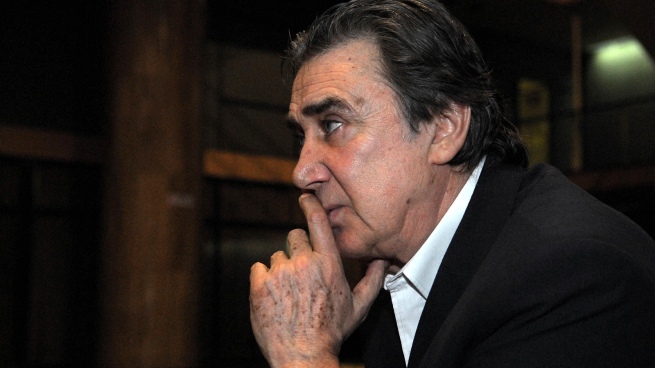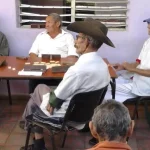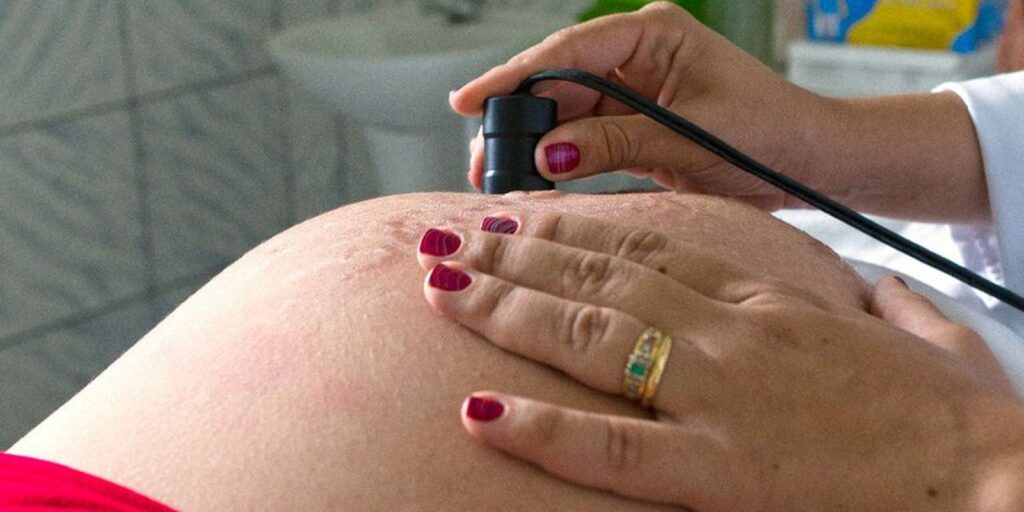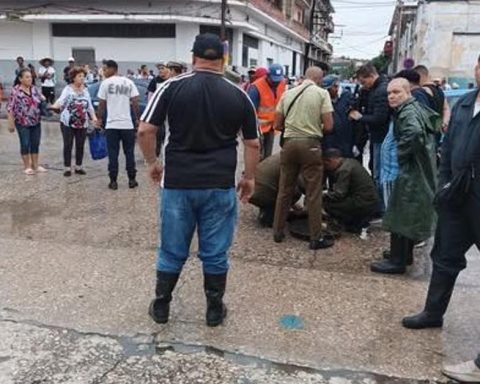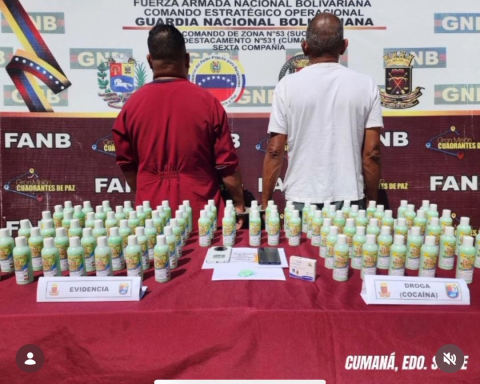Rodolfo Bebán, a great figure on the local scene as a result of his intense work in theater, film and television, died at the age of 84, away from acting for several years and a resident of a geriatric institution in Ciudadela, his hometown, according to confirmed the Argentine Association of Actors through their social networks.
“With great pain we say goodbye to actor and director Rodolfo Bebán. His extensive artistic career includes unforgettable works in film, theater and television. Affiliated with our union since 1962. We accompany their children, family and loved ones in this difficult time, “says the statement.
With six decades of acting in tow, Rodolfo Tilli -so it appeared in the documents- was born on May 25, 1938 and his work on TV, film and theater offered him the opportunity to reach diverse audiences, who could choose between the heartthrob of “Love has a woman’s face” and “Four men for Eva”, the Juan Moreira of the homonymous film by Leonardo Favio, or “Lorenzaccio”, by Alfred de Musset, where he shared the poster with Alfredo Alcón.
In his youth he had been passionate about fencing and dancing ballroom tango, but her father was Miguel Bebán (1918-2006), a well-known actor, theater director and trainer of actors and actressesand his direct link with the artistic environment, plus an appearance that made him stand out among his generation, invited him directly to the stage.
Perhaps due to generational –or private– issues, the Bebáns never got along despite the fact that the son adopted the artistic surname of the father and had no prejudice in committing himself in the commercial scene, as when he starred alongside Palito Ortega “The Odd Couple” by Neil Simon, “Butterflies are free”with Ana María Campoy, Susana Giménez and Gabriela Gili, “The Lovers” with Susana Campos, Fernanda Mistral, Lidia Lamaison, Adrianita and Norberto Suárez, or “Let’s live a dream”by Sacha Guitry, with his then wife Claudia Lapacó.
It was precisely with Lapacó más Alcón that he returned to the stage after a long pause in “Life philosophy”, by the Mexican Juan Villoro (Metropolitan, 2011), to demonstrate that his art was intact, even when confronted with those two monsters on stage. In recent years his career used to have interruptions: on TV nine years must have passed between his performance in “Men of honor” (2005) and “Camino al amor” (2014), which was his farewell.
A rich history
He began with repertory theater in 1955, directed by Pedro Escudero, a friend of his father, but the small screen soon took notice of him and he appeared in the series “The Fate Hour” (1960)along with a brilliant cast that included Alcón, Eva Dongé, Orestes Caviglia, Adrianita, Ricardo Lavié, Angélica López Gamio, Fernanda Mistral, María Luisa Robledo, Mecha Ortiz and Nathán Pinzón, top-level figures at the time.
It was that talent scout named Nené Cascallar who noticed him and introduced him to the prestigious cast of “Love has a woman’s face” (1964) and two years later in “Four men for Eve”, where those perfectly dressed men talked about their troubles with the female sex in a program considered “for adults”. The others were Jorge Barreiro, Eduardo Rudy and José María Langlais.
With that popularity he came to the cinema and filmed in 1966 the picaresque “Hotel accommodation”, of Fernando Ayala, and Arm in arm and down the street by Enrique Carreras, which was followed by the huge success of “The boys of the past did not use hair gel” (1969), by Carreras, with a script by “Flaco” Norberto Aroldi based on the original by Manuel Romero from 1937.
He was already a figure when he played “Romeo and Juliet”, by William Shakespeare, along with Evangelina Salazar, in a version that lasted more than two hours and was directed by María Herminia Avellaneda and a cast that included figures such as Claudia Lapacó, Tito Alonso, Ernesto Bianco, Osvaldo Pacheco, Susana Rinaldi and Serge Renan. Those were the times when the country stopped for a television program.
In 1972 he starred in the cinema Juan Manuel de Rosas by Manuel Antín, with a script by the director and historian José María Rosa –perhaps the first example of historical revisionism in national cinema– and did the same with the explosive “Juan Moreira” that for a long time disputed the scepter of the highest grossing national cinema with “Nazareno Cruz y el lobo”, by Leonardo Favio himself, until more modern titles ended that seat.
That same year he was one of the best paid actors on local TV when he starred in “Malevo”, a telenovela with Gabriela Gili and María Aurelia Bisutti that transcended borders and even created idioms -“…And I’m already leaving”- that remained in popular speech.
Later he was in charge of “No need to love you” (1975), “El Gato” (1976) and “El cuarteador” (1977), where he put himself in the shoes of Prudencio Navarro, a popular character from a tango by Francisco Canaro and Enrique Cadicamo.
On stage, his work in “The three sisters”, by Anton Chéjov, directed by Armando Discépolo at the San Martín in 1962, “Un tal Joe Miller”, by his father Miguel Bebán and directed by him, “No Exit”, by Dale Wasserman, directed by Jorge Hacker, “Diario de un crazy”, by Nicolai Gogol, directed by his father, “A handsome man from the 900”, by Samuel Eichelbaum, directed by Rodolfo Graziano, also the director of “Hamlet”, by William Shakespeare, plus “El saber”, by Pacho O’Donnell, directed by Daniel Marcove in 2004, where he again played the Restorer of Laws.
A reserved man, little friend of parties and entertainment venues, he had his place in the media much to his chagrin -some of his unofficial partners were María Aurelia Bisutti, Thelma Biral and Susana Giménez-, but his family life was the anchor always looking for: He married the actresses Claudia Lapacó and Gabriela Gili and was in a relationship with the model Liz Amaral Paz: in total he was the father of six children.
